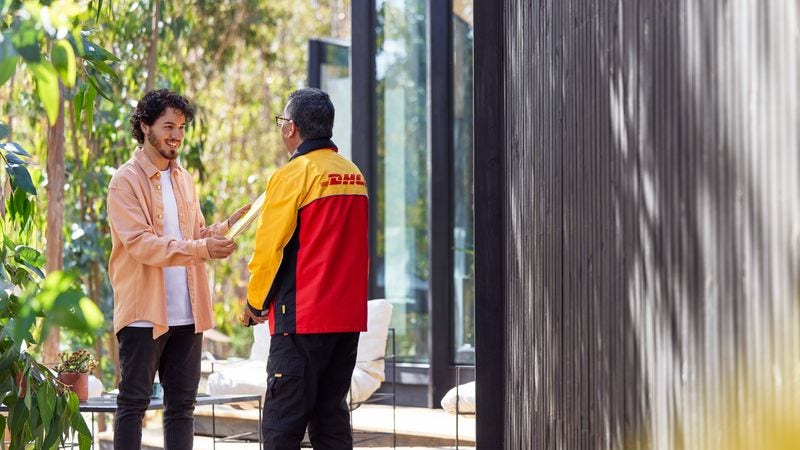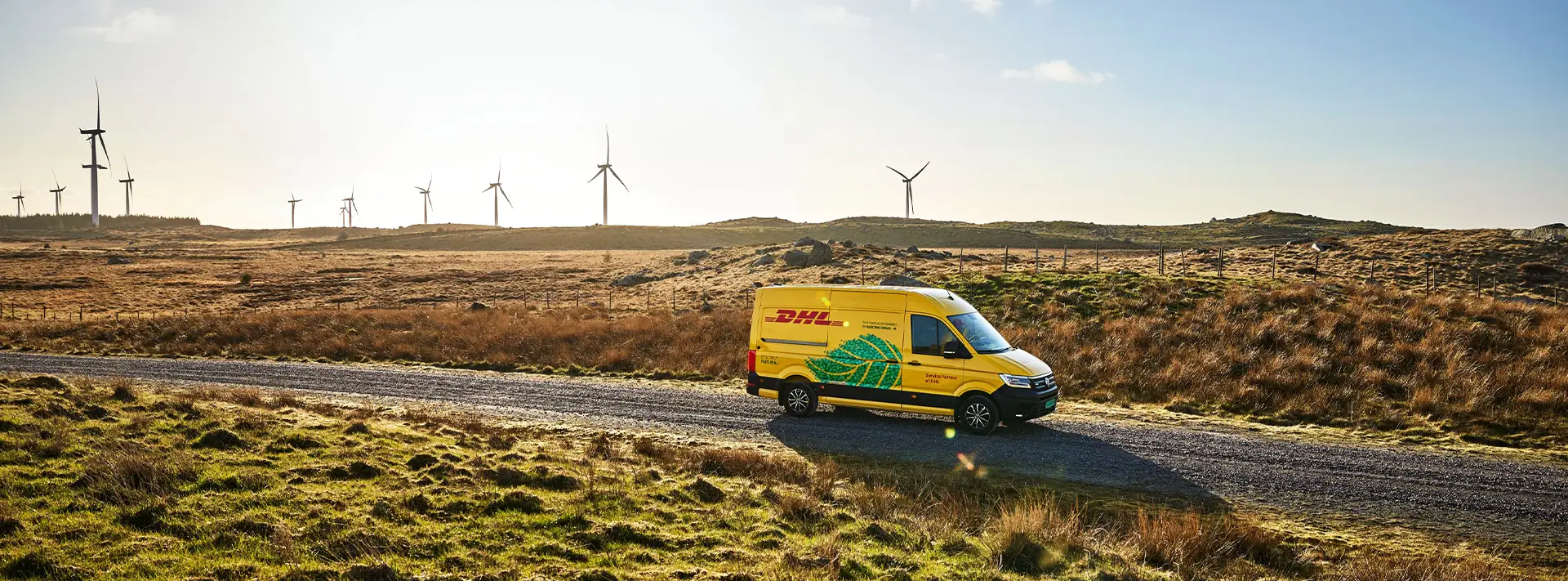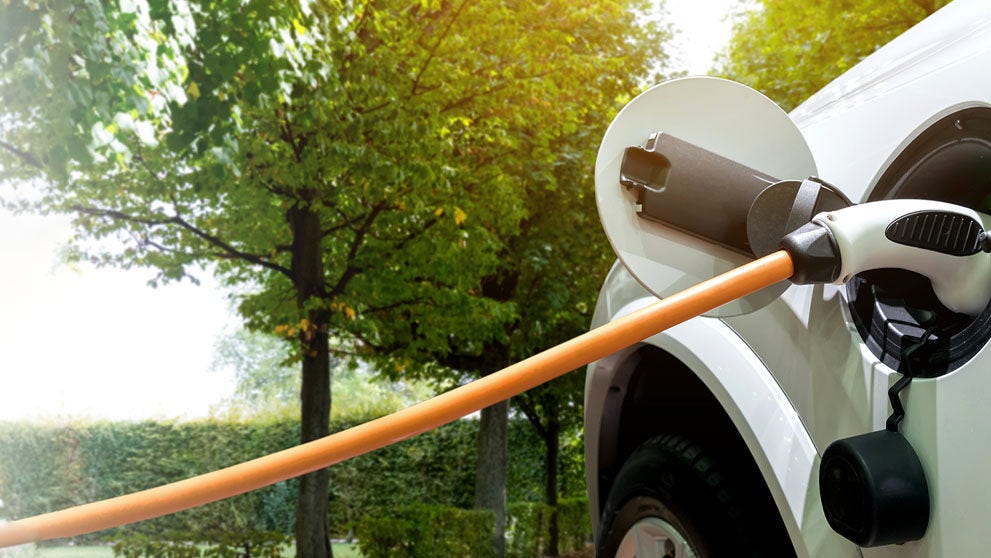
In the fast-paced global economy, our interconnectedness hinges on the shipping industry, both domestic and international. However, this reliance on shipping comes at a cost – the industry generates 3% of global emissions, escalating the urgency for environmental sustainability (source: Transport & Environment).
To address this growing concern, sustainable methods must be implemented to reduce the carbon footprint left by shipping. DHL Express, a global leader in logistics, is at the forefront of this movement, showcasing a forward-thinking approach to combat climate change.
Understanding Carbon Offsetting
Carbon offsetting is a powerful tool in the fight against climate change. At its core, it involves neutralising carbon dioxide (CO2) emissions by investing in projects that reduce an equivalent amount of CO2 elsewhere. This allows businesses and individuals to take responsibility for their carbon footprint while supporting environmental initiatives.
One compelling example is the REDD+ Project led by Cambodia's Wildlife Conservation Society (WCS). This carbon offset programme focuses on protecting Cambodia's forests, which are crucial carbon sinks that absorb CO2 from the atmosphere. By investing in the REDD+ Project, businesses can offset their emissions and contribute to preserving Cambodia's natural heritage.
Specifically, the programme works with local communities to develop sustainable forest management practices, prevent deforestation, and promote reforestation. These efforts not only safeguard vital ecosystems but also create economic opportunities for local people, ensuring a holistic approach to environmental conservation.
Carbon offset programmes like the REDD+ Project have become integral to modern environmental preservation strategies. They offer a tangible way to reduce our collective carbon footprint and invest in a more sustainable future.
How DHL Express' Carbon Offsetting Programme Works
DHL Express executes carbon offsetting through a meticulous process designed to help businesses mitigate their environmental impact by investing in projects that reduce or remove greenhouse gases from the atmosphere. They select high-quality carbon offset projects that meet stringent criteria, ensuring long-lasting positive change.
Key elements of DHL Express' carbon offsetting program:
- Selection of high-quality carbon offset projects: DHL carefully selects projects that meet stringent criteria to ensure their effectiveness and long-term positive environmental impact. These criteria include:
- Avoidance of double counting: Carbon credits are only issued once and cannot be used by multiple parties.
- Biodiversity: Projects should contribute to the conservation of biodiversity and ecosystem services.
- Climate integrity: Projects should be designed to achieve real and measurable reductions in greenhouse gas emissions.
- Durability of carbon benefit & shift to long-lived storage: Projects should generate carbon benefits that are durable and contribute to long-term carbon storage.
- Permanence: Projects should deliver permanent carbon reductions that are not likely to be reversed.
- Carbon leakage: Projects should avoid displacing emissions elsewhere.
- Sustainable development: Projects should contribute to sustainable development goals.
- Transparency: Project information should be transparent and publicly available.
- Additionality: Projects should generate carbon reductions that would not have happened without the project.
- Verification/Validation/Monitoring Report: Projects should be verified and validated by independent third-party organisations.
- Investment in green technologies and fuels: DHL Express invests in the development and use of green technologies and fuels, such as Sustainable Aviation Fuel (SAF), to reduce the carbon footprint of its operations. SAF is a biofuel from sustainable feedstocks, such as used cooking oil and agricultural waste. It can reduce the life cycle emissions of aviation fuel by up to 80%.
- Collaboration with partners: DHL Express collaborates with a variety of partners, including NGOs, governments, and other businesses, to develop and implement sustainable logistics solutions.
How businesses can engage with DHL’s carbon offsetting
Businesses can engage with DHL Express' carbon offsetting program by purchasing carbon credits or by participating in the GoGreen Plus program. GoGreen Plus is a pioneering green logistics initiative that focuses on avoiding emissions and investing in green technologies and fuels, such as Sustainable Aviation Fuel (SAF), to reduce the environmental impact of shipping operations. By implementing these initiatives, businesses can benefit in the following ways:
- Reduce your carbon footprint: By offsetting your carbon emissions, you can help mitigate the environmental impact of your shipping activities.
- Demonstrate your commitment to sustainability: Participating in DHL Express' carbon offsetting programme shows your customers and stakeholders that you are committed to environmental responsibility.
- Contribute to positive change: Your investment in carbon offset projects helps to support sustainable development and climate action.
DHL’s GoGreen Initiative
DHL's GoGreen initiative is a testament to the company's dedication to environmental sustainability. It encompasses a wide range of programs and solutions designed to minimise the ecological footprint of logistics operations. GoGreen Plus goes beyond offsetting emissions to include carbon insetting, which involves reducing emissions within DHL's own supply chain. This holistic approach addresses environmental concerns at every stage of the shipping process.
In addition to carbon offsetting, the GoGreen initiative incorporates other key components:
- Sustainable Aviation Fuel (SAF): Using Sustainable Aviation Fuel, which is produced from renewable sources, DHL Express significantly reduces carbon emissions from its air freight operations. This insetting method directly tackles emissions within the company's core operations.
- Green optimisation: DHL Express continuously evaluates and optimises its transport routes and modes to minimise fuel consumption and emissions. This includes using electric vehicles for last-mile deliveries and exploring alternative fuels for long-haul transportation.
- Climate-neutral facilities: DHL Express invests in energy-efficient buildings and renewable energy sources to power its facilities, reducing its carbon footprint. This showcases a commitment to sustainability, even in the company’s infrastructure.
- Employee engagement: DHL actively involves its employees in sustainability efforts, encouraging them to adopt eco-friendly practices both at work and in their personal lives. This fosters a culture of environmental responsibility throughout the organisation.
Why Cambodian businesses should adopt sustainable logistics
Compliance with International Standards
As global trade continues to expand, international standards for environmental sustainability in shipping are becoming increasingly stringent. By adopting sustainable logistics practices, Cambodian businesses can ensure compliance with these standards, opening doors to new markets and opportunities.
Improved corporate image and attraction of eco-aware consumers
Consumers are increasingly conscious of the environmental impact of their choices, including the products they purchase and the companies they support. By demonstrating a commitment to sustainable logistics, Cambodian businesses can enhance their corporate image and appeal to eco-aware consumers. This can lead to increased brand loyalty, stronger customer relationships, and a competitive edge in the market.
Long-term logistical efficiencies and cost reductions
Sustainable logistics practices often lead to long-term efficiencies and cost reductions. By optimising transportation routes, using fuel-efficient vehicles, and reducing waste, businesses can streamline their operations and save money. Additionally, investing in renewable energy sources and energy-efficient technologies can further reduce operational costs and create a more resilient supply chain.
Establishing Cambodian Enterprises as Sustainability Pioneers
By taking the lead in adopting sustainable logistics, Cambodian businesses have the opportunity to position themselves as pioneers in the region and globally. This can attract international recognition, investment, and partnerships. Moreover, it can inspire other businesses to follow suit, creating a ripple effect of positive environmental impact.






























